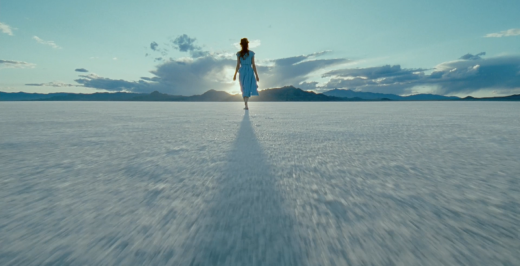Director: Terrence Malick
Writer: Terrence Malick
Year: 2011
Cast: Jessica Chastain, Brad Pitt, Hunter McCracken
★★★★★
Where were you when I laid the foundations of the Earth?
The Tree of Life opens with this quotation from the Book of Job, set against a black screen. It is a big question, but this is a big film. It has been compared to 2001: A Space Odyssey for many reasons, most of them aesthetic. However, it is also reminiscent of its scope, its attempt to portray, if not to answer, the big questions. 2001 presents an unattainable truth, concealed in an alien object which is beyond our understanding. The Tree of Life presents a family.
Where were you when I laid the foundations of the Earth? That is a question at the heart of every family. Jack (Hunter McCracken/Sean Penn) is a child, who, like all others, grows up to question the way of the world. He questions his father (Brad Pitt) for the way he has restricted his relationship with his mother (Jessica Chastain), for his forceful nature, for the way in which he and his brothers have been brought up. Pitt’s character is unsympathetic. It is clear he loves his children, but his love appears cruel and hard. His performance is all in the chin.
But the children do not know the way of the world, and it is up to the father to teach them. Who are they to question him, when all they have rests in what he has built? He has built it with his own hands, as he continually reminds us.
The mother is the antithesis of the father. She is love embodied. Considering the lack of dialogue she has to work with, Chastain gives a remarkable performance and Malick directs her superbly. The goodness and purity of the character shines through every look, every gesture, whether she is laughing or in tears. She is believable in every sense, as a mother, as the ultimate mother, as an Eve. At one point she floats in the air beneath a tree, and we believe her.
The struggle in the film is between the father and the mother, or the way of nature and the way of grace, as Malick puts it. In other words, between what we are given in life (by God) to work with, and the ideal that we yearn to be. The allegory is deceptively simple. All the wonders of eternity, all the grace and cruelty of God, presented in the image of a family which is unquestionably real.
It sounds too good to be true and perhaps is. The main problem is one of balance. At times, the middle section of the film does not seem to progress, and, despite beautiful imagery and strong performances, it cannot quite live up to the spectacular frame. Penn’s older Jack is underused, despite the importance of his role, and the omission of the dramatic catalyst of the narrative means the audience must take a leap of faith to entirely connect with the ending. It is evidently a personal film, which may explain Malick’s aversion to conventional narrative techniques, even at the expense of synthesis.
It is, at the same time, a very easy and very difficult film to criticise. It is not flawless, yet feels like it should be. It must be said that the opening and closing scenes are some of the most beautiful that exist in cinema. It is a spiritual experience and one that won’t be replicated for a long time. Just go and see it.
